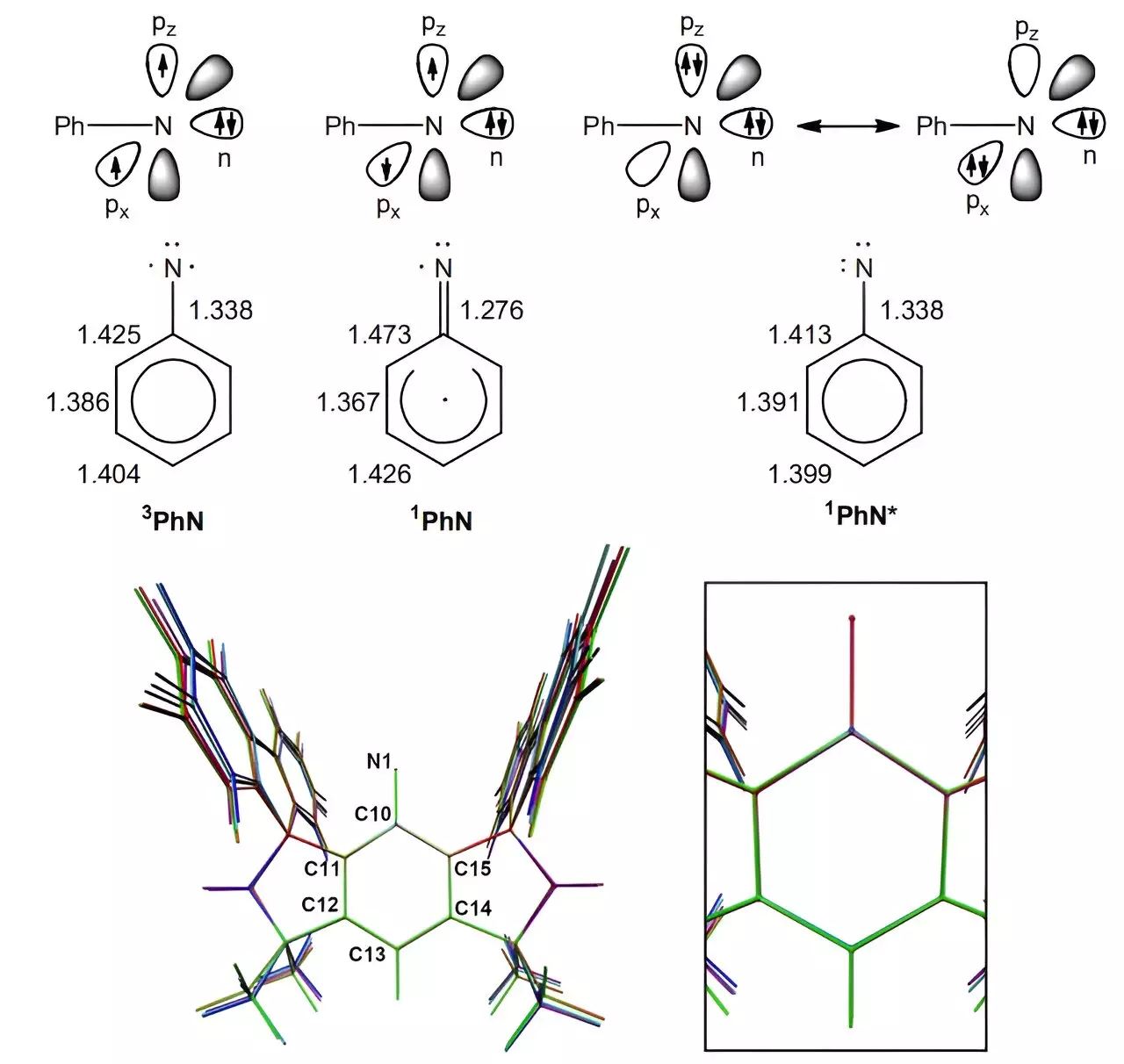Nitrenes are a type of electrophile molecules that contain a neutral atom bonded to a single other substituent. Due to their structure with just six electrons in their valence level, they typically have very short reaction times, often in the nanosecond range. This quick reactivity has posed challenges for chemists looking to utilize nitrenes in various applications.
A team of chemists at the University of Bremen in Germany has recently made a groundbreaking discovery in the field of nitrene chemistry. They have successfully developed a new type of nitrene that exhibits slow reactions, lasting for up to three days. This novel achievement opens up a whole new realm of possibilities for the use of nitrenes in commercial applications.
To achieve this remarkable feat, the research team utilized a chemical scaffold known as MSFluind, which was originally created in 2011 by another group of researchers. By leveraging this scaffold, the chemists were able to control the access to the nitrogen atom in the nitrene molecule, leading to significantly slower reaction rates. This innovative approach involved subjecting an azide precursor, MSFluindN3, to ultraviolet light, resulting in the formation of MSFluindN, the slow-reacting nitrene.
Following the synthesis of the slow-reacting nitrene, the researchers conducted a series of analytical techniques to study its properties. They employed X-ray crystallography to determine its structural characteristics, electron paramagnetic resonance spectroscopy to analyze its spin state, and superconducting quantum interference device magnetometry to measure its stability. Surprisingly, the nitrene maintained its spin-triplet ground state and persisted for an impressive three-day timespan, contrary to the rapid reactivity commonly associated with nitrenes.
The successful development of a slow-reacting nitrene opens up exciting possibilities for the synthesis of new transition metal complexes. This breakthrough technique not only expands the scope of nitrene chemistry but also paves the way for the creation of innovative materials and compounds with unique properties. The research team’s work represents a significant advancement in the field of organic chemistry and sets the stage for further exploration and application of slow-reacting nitrenes.



Leave a Reply